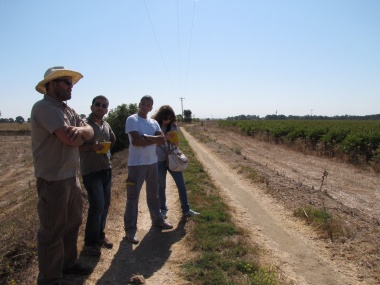There has been a decline in Lebanese forests by more than 35% over the last 50 years. Increasingly, there has been a serious need for more forested areas in the country. Aside from providing restoration to sites with important ecological, cultural and watershed values, the planting of Lebanese cedar and other native trees is aimed to alleviate poverty and promote unity and pride for the once-thriving Lebanese forests.
Through funding from the United States Forest Service and the United States Agency for International Development/Lebanon, we hosted 3 Lebanese geographers working on a Reforestation Initiative. The Initiative focuses on planting native trees on public lands in order to improve water quality and storage, aquifer recharge and a broader purpose in mitigating the effects of climate change.
While visiting UC Davis, the group observed a number of restoration sites including:
- Bobcat Ranch in Winters which focuses on planting oaks in a site-level nursery,
- Quail Ridge in Winters that utilizes an internet-based weather monitoring station,
- The Consumnes Preserve in Elk Grove which houses a range of restoration research in riparian and agricultural landscapes.
In addition to addressing the Lebanese Reforester's mapping approaches and showcasing successful community restoration projects, the group was also exposed to advanced mapping equipment and various experts in restoration fields.

